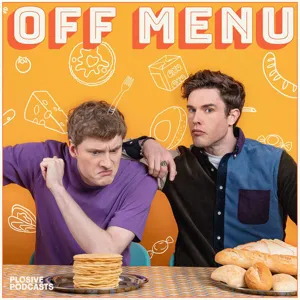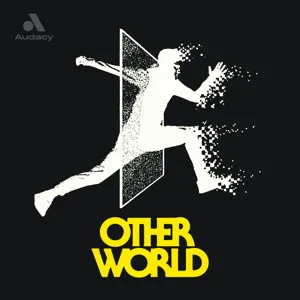Podcast Summary
How songs are deeply embedded in our memory: Songs are processed holistically in our brains, making them deeply embedded memories through repetition and interconnected elements of melody, lyrics, and context.
Our brains have a remarkable ability to remember songs due to their deep ingrainment in our memory. According to neuroscientist Keith Doling, this is because we listen to songs repeatedly, which helps them become deeply embedded in our memory. However, the neuroscience behind this phenomenon goes beyond simple repetition. In the interview on NPR's Shortwave podcast, Ritu Chatterjee and Rasha Airedi discuss how songs can evoke powerful feelings of nostalgia and how they are processed differently in the brain compared to other types of memories. Doling explains that songs are processed holistically, meaning that the melody, lyrics, and even the context in which they were first heard are all interconnected and contribute to the memory. This is why songs can bring back vivid memories of specific moments in our lives, even if those memories have faded over time. So the next time you find yourself singing an old song and wondering how you still remember the lyrics, remember that it's a testament to the power of music and the amazing capabilities of our brains.
Our brains remember info presented musically or rhythmically better: The use of rhyme, repetition, and rhythm in information presentation can help our brains encode and retrieve it more effectively.
Our brains are more likely to remember information that is presented in a musical or rhythmic way due to the use of rhyme, repetition, and rhythm. These elements help our brains encode and retrieve information more effectively. For instance, songs often have catchy choruses and repetitive tunes that make them easier to remember. Additionally, our brains can often fill in missing information based on patterns learned from past experiences. This is why teachers sometimes use songs or jingles to help students remember important concepts. Similarly, the Apple Card rewards system uses a simple and repetitive structure to make it easier for users to understand and remember the different rewards they can earn. In the case of the Apple Card, users earn 3% cash back on purchases made with Apple, 2% on purchases made with Apple Pay, and 1% on all other purchases. By using a clear and consistent structure, the Apple Card rewards system takes advantage of the brain's natural tendency to remember information that is presented in a musical or rhythmic way.
Learning Math Through Music: Our brains process mathematical formulas better when linked to familiar things like melodies or songs, stimulating various brain areas and releasing dopamine for a rewarding experience.
Our brains remember and process mathematical formulas, like the quadratic formula, more effectively when they are associated with something familiar, such as a melody or a song. This is because our brains encode information better when it is linked to other things. When we listen to music, various areas of the brain are stimulated. The primary auditory cortex processes the music, identifying elements such as melody and harmony. The language center of the brain also gets involved, recognizing and understanding the lyrics. The part of the brain that processes tone and fluctuations in speech processes the melody and beat of the song. Additionally, listening to music is an active experience. If we are reading lyrics or following sheet music, the visual processing center of the brain interprets what we see. Music also activates the motor cortex, causing us to tap our feet or sway to the rhythm. The part of the brain that coordinates movement and balance ensures we don't lose our footing. Moreover, listening to music is a rewarding experience at a chemical level. Our brains release dopamine, a neurotransmitter associated with pleasure, when we enjoy music. The emotions we feel when listening to music are processed in areas such as the amygdala, which attaches those emotions to our memories. Therefore, the next time you find yourself humming the quadratic formula, don't be surprised. It's just your brain hitching a ride on a familiar tune.
Music activates multiple brain regions for better memory recall: Music processing triggers various brain areas, enhancing memory encoding and recall through emotional connection and long-term storage
Our experiences with music, such as singing, dancing, and the emotions attached to songs, contribute to the various ways in which our brains encode and remember music. The activation of multiple brain regions during music processing increases the chances of recalling memories associated with a song from different storage spaces. Furthermore, the strong emotional connection to music enhances memory encoding through the amygdala's involvement in signaling long-term memory storage. This complex neural network explains why some individuals with memory loss can still recall music despite difficulties remembering other information.
Childhood memories and cherished experiences: Childhood experiences, like listening to Arabic music with a brother, can deeply influence us and remain cherished memories. NPR's Shortwave is made possible by various contributors.
Our childhood experiences, no matter how small or seemingly insignificant, can shape our memories and influence us in profound ways. Rasha Airedi shared a heartwarming story about listening to Arabic music with her little brother on the way to elementary school, which remains a cherished memory for her. This episode of Shortwave from NPR was made possible by the contributions of various individuals, including Kimi Seguaya, Keith Doelling, Melita Belgrave, Britt Hanson, Vietley and Giselle Grayson, Burleigh McCoy, and John Hamilton. A special thanks to Easycater for their support in simplifying corporate catering needs and to BlackRock for their podcast, The Bid, where Larry Fink discusses challenges facing investors. Overall, this episode highlights the importance of cherishing our past experiences and the role of various contributors in bringing meaningful content to the public.






